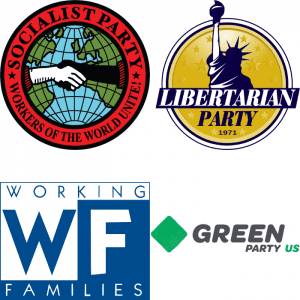So this was in my inbox this morning, from the high mucky-mucks here at Patheos:
Patheos Politics: Promoting the Election
Patheos is launching two new channels for the Election 2016: Politics Red and Politics Blue. Each channel will be dedicated to the arguments, analyses, and commentary of its constituency—conservative and liberal. There will be some new bloggers…but we’re also inviting those of you who have a political voice to participate….We encourage you, as much as is appropriate, to blog on the Election 2016…
Now, while I’ve not shied away from politics here and during my run on the Agora group blog (see here and here and here and here and here and, yeah, here…), I have tried to have at least some explicit connection to matters spiritual in such posts.
But, gee, Patheos, since you asked for more politics…well. I feel a little clickbaity here, but let’s start with that idea you’re basing this on: that American politics consists of two and only two constituencies.

This notion is more problematic than usual in a year when our two major parties seem ready to nominate a xenophobic plutocratic con-man who advocates torture and a warmongering serial liar who’s a friend to war criminals and Wall Street, with each side screaming that the absolute number one priority is to keep the other side out of power no matter how wretchedly evil their own candidate may be. It’s hard to tell which would do more damage to the country in the long run: a few years of President Trump with the benefit of the Democrats finally freed from the Clintons, or the perhaps lesser immediate evil of a President Clinton II but long-term problem of the Democratic Party pulled into territory to the right of Nixon.
If this is the best we can do, my friends, it’s time to declare the American experiment a failure and bring it to a close. See you at the post-apocalyptic wrap party; bring your own canned goods and ammunition.
There’s still a shot that Democratic leaders and voters will wake up and nominate their stronger candidate — Sanders polls significantly better than Clinton in match-ups against the GOP candidates. Or the Trump phenomenon may burn itself out and leave the nomination to Rubio or Cruz — both horrible choices but notably farther from outright fascism than Trump.
But regardless of the eventual outcome it’s been a strong year for “outsider” candidates. And if there is a bright side here it’s this growing realization that our de facto two-party system is broken. I say “de facto” because — though many people don’t realize this — it’s not part of our Constitutional structure of government. Indeed some aspects clearly violate the equal protection clause of the Fourteenth Amendment by granting more legal rights (ballot access, use of public facilities to hold primaries) to members of the two major parties than to smaller parties or independents like myself. (For the record, I am not nor have I ever been a member of any political party, and I have voted for Democratic, Republican, Green, and Libertarian candidates.)
The brokenness is not just apparent in the Presidential race. The polarized partisanship that has paralyzed Congress is the predictable result of partitioning the electorate into two parties.
So how can we move from that realization to reform? How can we get past “Don’t blame me, I voted for Kodos!” and “Because if they didn’t vote for a lizard, the wrong lizard might get in”?
Well, like every step towards freedom, it begins with imagination. We have to imagine that such a thing is possible, that we are not stuck this way, that change can happen. We have to apply the magic power of skepticism to break the spell called “That’s just the way it is.”
Next is an act of individual liberation. Stop identifying yourself with an easily-bounded constituency. Claim your complexity as a multidimensional citizen, not someone who can be compressed down to a point along a single left-right axis.
Once a substantial number of people have done that — and I think we’re getting there — we can move to systematic reforms.
Non-partisan primaries are essential and should be demanded along equal-protection lines. Either that or do away with government-run primaries entirely; if the Democrats or the Boy Scouts or the Three Stooges Official Fan Club or any other private group wants to put their resources behind a candidate, let them make that decision using their own resources.
Ballot access must be reformed. Again, it’s a matter of equal protection: the laws must set the same standard for all candidates, no special treatment for members of certain parties.
Instant run-off voting (a.k.a. preferential voting) is necessary to allow voters to express their true preferences rather than be tricked into the false dilemma of “lesser of two evils.” (The proper response to someone demanding that you choose one evil or the other is to punch them in the nose. Never choose evil.)
And of course campaign finance reform to draw a clear distinction between bribery and speech is needed to get corruption out of the process.
With reforms like that, we could get a multi-party Congress reflecting a true diversity of ideas and less subject to a one-party blockade. And we could get a set of Presidential candidates who would have to work to build consensus among several different groups rather than relying mostly on support from their own party.
In the mean time, brace yourself: the next few years are likely to be a bad time to be an American.
You can keep up with “The Zen Pagan” by subscribing via RSS or e-mail.
If you do Facebook, you might choose to join a group on “Zen Paganism” I’ve set up there. And don’t forget to “like” Patheos Pagan and/or The Zen Pagan over there,
too.













